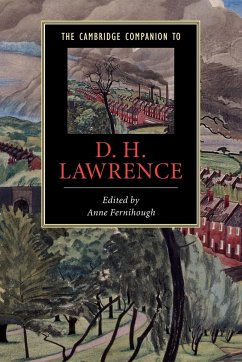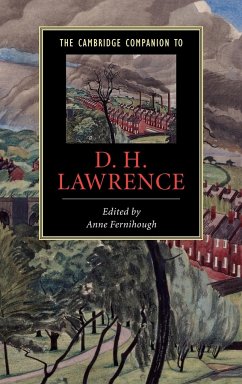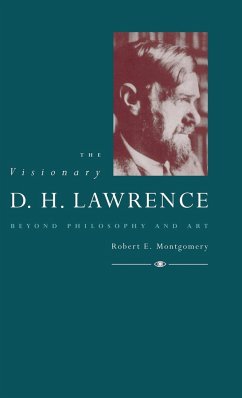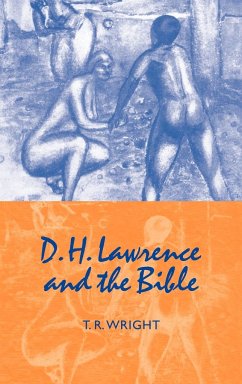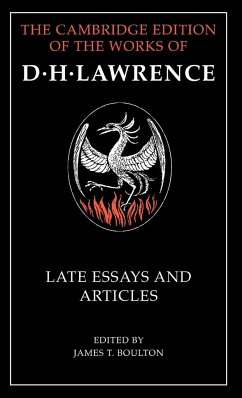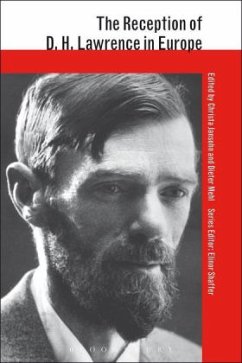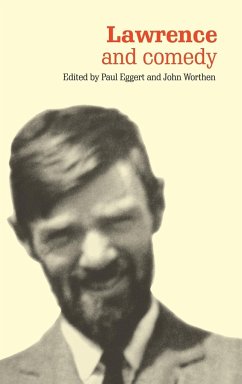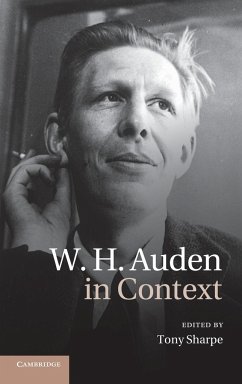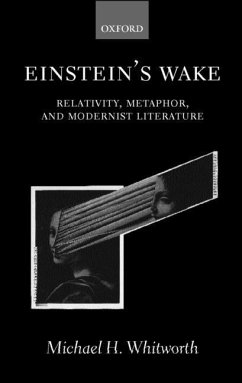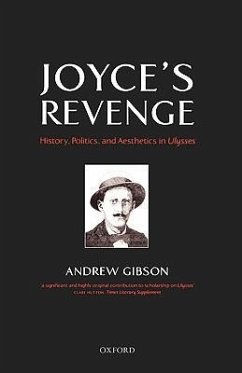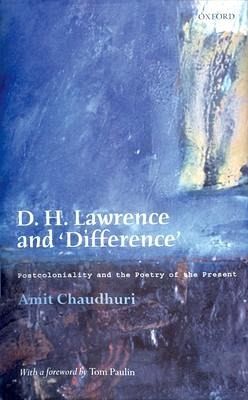
D. H. Lawrence and 'Difference'
Postcoloniality and the Poetry of the Present
Versandkostenfrei!
Versandfertig in 1-2 Wochen
97,99 €
inkl. MwSt.

PAYBACK Punkte
49 °P sammeln!
This important study from the prizewinning novelist and critic Amit Chaudhuri explores D. H. Lawrence's position as a 'foreigner' in the English canon. Focusing on the poetry, Chaudhuri examines how Lawrence's works, and Lawrence himself, have been read, and misread, in terms of their 'difference.' In contrast to the Leavisite project of placing Lawrence in the English 'great tradition,' this study demonstrates how Lawrence's writing brings into question the notion of 'Englishness' itself. It also shows how Lawrence's aesthetic sets him apart radically from both his Modernist contemporaries an...
This important study from the prizewinning novelist and critic Amit Chaudhuri explores D. H. Lawrence's position as a 'foreigner' in the English canon. Focusing on the poetry, Chaudhuri examines how Lawrence's works, and Lawrence himself, have been read, and misread, in terms of their 'difference.' In contrast to the Leavisite project of placing Lawrence in the English 'great tradition,' this study demonstrates how Lawrence's writing brings into question the notion of 'Englishness' itself. It also shows how Lawrence's aesthetic sets him apart radically from both his Modernist contemporaries and his Romantic forbears. The starting-point of this enquiry into Lawrentian 'difference' is, for the purposes of this study, the poetry, its stylistic features, the ways in which it has been read, and, importantly, involves a search for a critical language by which it, and its 'difference', might be addressed. In doing so, it takes recourse to Jacques Derrida's notions of 'grammatalogy' and 'ecriture', and Michel Foucault's notion of 'discourse'. Referring to Lawrence's travel writings about Mexico and Italy, his essays on European and Etruscan art, on Mexican marketplaces and rituals, and American literature, and especially to his poetic manifesto, 'The Poetry of the Present,' this book shows how Lawrence was working towards both a theory and a practice that critique the post-Enlightenment unitary European self. Chaudhuri also, radically, allows his own post-colonial identity to inform his reading of the poetry, and to let the poems enter into a conversation with that identity. This is the first time that Lawrence's poetry has been discussed in this way, in the light of post-colonial and post-structuralist theory; it is also the first time a leading post-colonial writer of his generation has taken as his subject a major canonical English writer, and, through him, remapped the English canon as a site of 'difference.'





